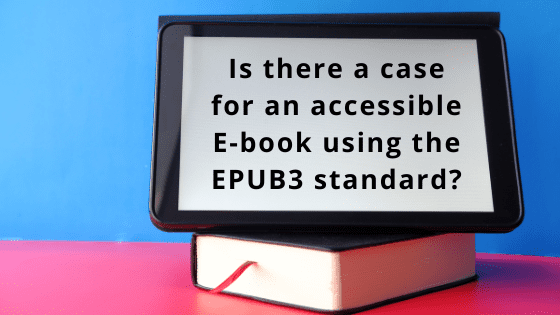The case for providing an e-book has already been made, and publishers have already started to address this market! The question now to be asked is whether there is a case for an accessible e-book using the epub3 standard rather than just an e-book which can be enjoyed by people with disabilities also.
“As an avid reader, it’s great to just be able to go online, buy a book and read it. There is no need, to wait for an accessible format! In the last year alone, I would have bought e-books of about approximately USD 200! If more and more books would be born accessible, the dimension of inclusion will change for people with print disabilities in education, employment and society in general” states Dipendra Manocha, Daisy Consortium, Developing Countries Co-ordinator.
At BarrierBreak, we do believe there is a case for all publishers to look at accessible e-books seriously. Let me pen some of our reasons why we believe this!
- For people with visual impairment, e-books are actually the preferred format. E-books can be read using assistive technology! Based on the disability, they can adjust the text and formatting or listen to the e-books using a screen reader.The WHO worldwide statistics also reflect the business case, with 285 million people with visually impaired worldwide out of which 39 million are people who are blind and 246 million people have low vision. As a publisher, it only makes sense to address this target market!
- Today, most of the accessible content is being created by blindness organizations & libraries catering to the needs of this group! The World Blind Union states that less than 10% of all published material can be read by blind or low vision people. The Marrakesh Treaty firstly provides for a limitation or an exception to copyright in order to allow “beneficiaries” and “authorized entities” to undertake any changes needed to make a copy of a work in an accessible format for persons with a print disability. Secondly is to allow the exchange across borders of those accessible copies produced according to the limitations and exceptions!
Publishers need to work towards providing the accessible formats, since then they would be supporting the needs of this market segment. A one time investment in the accessible format which could be accessible e-books using the epub3 standard, braille and/or large print books can go a long way in making the economic case that publishers need to consider in this changing digital environment!
Publishers now is the time to act and the opportunity to address the needs of an under-served audience!
Write to us at info@barrierbreak.com to know more on accessible epub3 and accessible or inclusive publishing!
